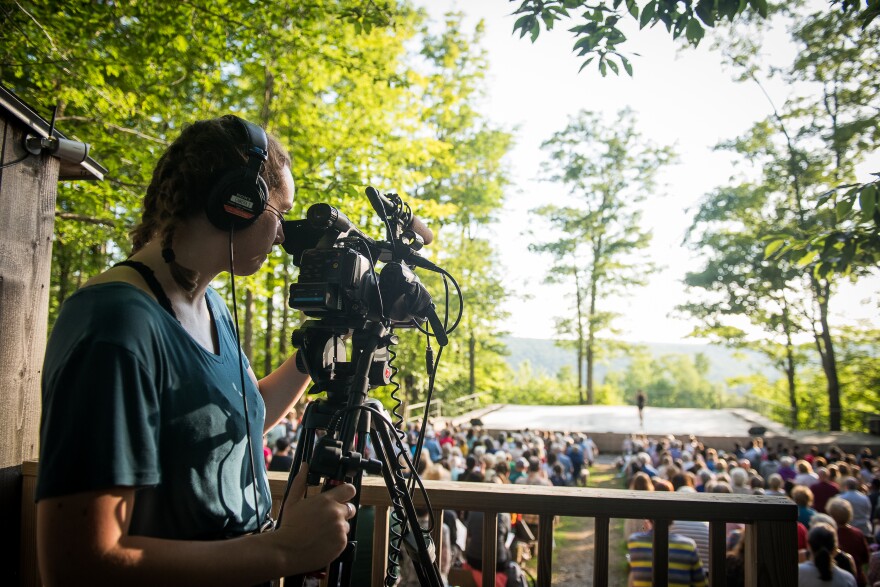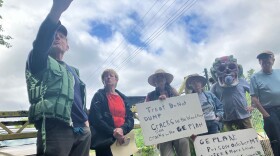Just say “the Berkshires” and many people envision a thriving arts community with world-class institutions, attracting visitors from all over. But a recent report finds a deep compensation inequity rooted in those same Berkshire County arts organizations.
Aron Goldman was the consultant for the Berkshire/Columbia Pay Equity Project.
Carrie Healy, NEPM: Aron, this is happening as a larger national conversation on pay equity is working on similar challenges. But what makes the Berkshires and Columbia County, New York, the right place to take a deep look at this issue?
Aron Goldman, project consultant: Well, Carrie, I think you hit the nail on the head. People have an impression of the Berkshires as well-heeled, well-to-do place with extraordinary world-class arts. It's very difficult for people to imagine that there might be an invisible underclass that is essentially providing the horsepower for all of that.
Can you briefly describe what sort of organization's employees were surveyed as part of this and what their responses were measuring?
Arts organizations came together and found me to help them pursue a hypothesis that they had about this invisible underclass, and wanting to put a finer point — and shine a light on — this cohort of workers whom everybody sort of had an anecdotal sense was really struggling.
We've grown to eight organizations: Art Omi, Jacob's Pillow, Flying Cloud Institute, Community Access to the Arts, Berkshire Arts Center, WAM Theater, the Mahaiwe Performing Arts Center and Williamstown Theatre Festival, all who recognized the problem and want to make real changes.
For example, there's a big disconnect between board members and donors, on the one hand, and these invisible entry-level and mid-level workers.
One of the approaches was a online survey and we got 188 responses from current or former entry- and mid-level arts workers around the region, which is an incredible response rate for a regional survey like this. And sure enough, those 188 respondents, representing 43 different employers, 33 different position titles, provided a really sobering picture of what's going on.
Folks really on the margins, barely able to make a go of it, many of whom were forced by financial circumstances and working conditions to abandon the sector. And the ones that were able to stick it out were the ones who came with privilege already. Those who could afford to work for free or almost nothing.
The survey offered respondents some open-ended responses, and it looks like you got a look at some pretty candid snapshots of life for some of these employees, such as, “Long commutes on dark, curvy roads without mileage reimbursement.” What were some of the ones that stuck with you?
There was one young woman who said that — it's great that I get a technology stipend, but it's strange that I don't get a health stipend. And to me, to her, this really sent a message about the values of her employer and the worth of entry-level and mid-level workers.
Were there any differences that your survey found in responses from those who identified as LGBTQ+ or BIPOC, with those from other respondents?
Yes. In fact, one element of our research was to do with sort of a scan of existing research that's been done. And there is a critical survey done in 2022 looking at race and nonprofit employment in Massachusetts. And that was sobering. More respondents who were people of color experienced bias in the form of organizations that lack ladders, succession planning or effective mentoring, as well as nonprofits in which favoritism and inconsistent standards yield unfair outcomes.
And this was one of the most interesting findings. Respondents of all races reported greater job satisfaction if they were employed by people-of-color-led organizations, rather than white-led organizations. Isn't that a creative way to improve the experience of entry- and mid-level workers?
Is that a challenge in the Berkshires?
Of course it is. Historically, the Berkshires has been known as progressive, but extremely white. There's another side to the Berkshires, and it doesn't look like that at all. But as long as it's a pay-to-play system for entry- and mid-level workers who really want to contribute, work hard and — just as importantly — contribute their creative insights, we've got to recognize that population and we've got to make some real changes.
Disclosure: A number of the arts organizations mentioned in this interview are underwriters of NEPM, although that is not a factor in how we report on the arts.







